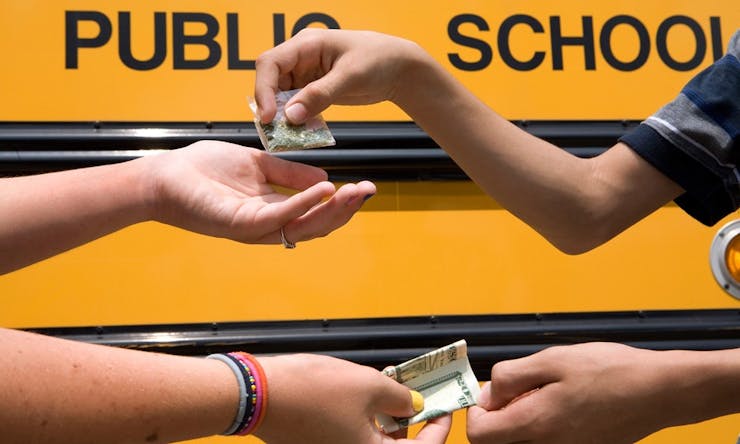A major story has been stirring up the media lately about an 11-year old boy who was found with an innocuous leaf in his backpack. The student, who is the son of two teachers and is in the gifted and talented program at his school, was accused of showing a leaf to his classmates after school administrators were notified about someone bragging about having “marijuana" and passing it around to others.
Concerned administrators searched the boy’s bag and indeed found a leaf but no cannabis. Although the boy denied the leaf was his, the school suspended him for an entire year and filed marijuana possession charges against him in juvenile court. In the months since his suspension, the leaf itself has tested negative for cannabis three times.
The boy’s parents are now suing the school, saying that their son was wrongfully charged and suspended, and that the leaf was planted by another student. On top of that, their son has become withdrawn and is now under the care of a pediatric psychiatrist for depression and panic attacks.
In light of this egregious error of justice, a new study released by the American Journal of Public Health seems all the more relevant. In fact, the study had such an unexpected outcome, it even surprised the researchers. The “Longitudinal Effects of School Drug Policies on Student Marijuana Use in Washington State and Victoria, Australia” examined the effect of school suspension policies for cannabis use among students. Researchers conducted a large study of 7th and 9th graders from both Washington state and Australia during the 2002-03 school year, comparing drug policies and how they impacted future cannabis use.
The results?
Suspending teens over drug use actually increases the likelihood that they will continue to use cannabis, whereas those who were referred to a school counselor instead of being suspended were 50 percent less likely to use cannabis. A zero-tolerance punishment program does little to educate young people about why the choices they've made are inappropriate. Conversely, taking the time to actually sit down with these impressionable minors and counsel them on making smarter decisions, as well as explaining why cannabis is intended for adult or legitimate medical use, is a more effective tactic with lasting results.
As the world progresses towards ending cannabis prohibition, reducing cannabis use in teens is and will continue to be a major concern, but, as the study concludes:
“Schools may reduce student marijuana use by delivering abstinence messages, enforcing nonuse policies and adopting a remedial approach to policy violations.”
The moral of the story: Stop suspending students over cannabis (especially if it’s not actually cannabis), and start educating them first.
#JustSayKnow





